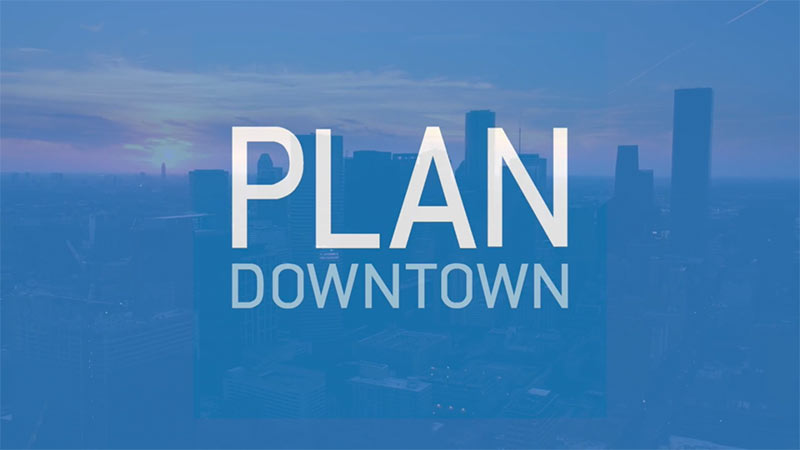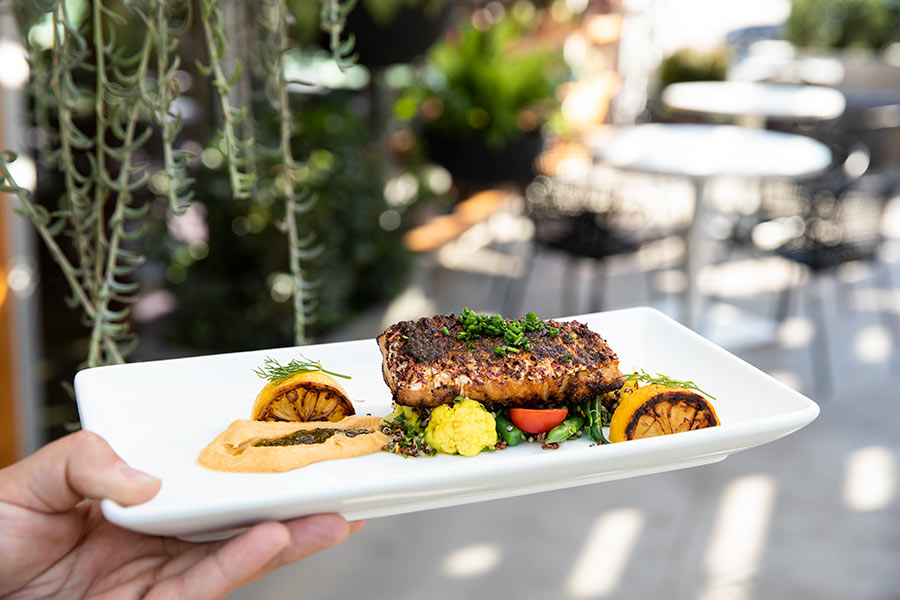 Today our sponsor is Plan Downtown and the Downtown District, bringing you the last of 4 weekly posts focusing on the 4 pillars of the Plan Downtown effort. Thanks for supporting Swamplot!
Today our sponsor is Plan Downtown and the Downtown District, bringing you the last of 4 weekly posts focusing on the 4 pillars of the Plan Downtown effort. Thanks for supporting Swamplot!
How can the Plan Downtown effort establish Downtown Houston as a leading multi-modal center?
Pillar Four of the strategic initiative seeks to answer this question. More specifically: how to connect Downtown Houston to the general region, and how to capitalize on Downtown’s place as a walkable area with bikeway, greenway, transit, and roadway networks.
Dr. Carol Lewis, professor and director of the college of science, technology, and engineering at Texas Southern University, has spent much of her career researching transportation planning and policy, public transit operations, and public involvement. In this interview, Dr. Lewis discusses improvements meant to help Downtown Houston flourish as a destination that provides flexibility in its mobility options.
The goal? To improve neighborhood edge conditions, reduce barriers, and expand green networks, with streets serving as connectors to destinations that reinforce opportunities for land uses.
Q: Why is Downtown Houston important to the region?
A: Downtown is the symbolic heart of the city. At one time, people joked that one could roll up the streets of Downtown at the end of the workday. That wasn’t good.
This core is the seat of government for most of the region’s residents (City of Houston and Harris County), the historic location of the city’s founding, plus its cultural core, with theaters, sports, and entertainment. A strong Downtown will serve as the pulse of the region.
Q: Why do you feel we need to talk mobility now?
A: Because the City of Houston and our region are going to gain millions of people over the next 10 years. Essentially, we’re going to get the city of San Antonio and layer it on top of Houston. We’re already having trouble with our mobility.
I think mobility Downtown is critical because if people can’t get Downtown, it’s going to signal something negative for the rest of the region. We have to have enough dialogue around it to make sure our decisions are correct.
Q: What improvements can be done to make Downtown more walkable?
A: Beyond the physical — like increasing sidewalk width, adding a strip separating pedestrians from vehicular traffic, and improving lighting conditions at night — opening more ground-level retail and giving people other places to go would make Downtown more walkable.
The key to making an area more walkable is people. We have to get more people Downtown. It’s happening already, so we need to fuel that trend. Include more buildings that face the street with glass facades. If I’m outside, I can see people inside. If I’m inside, I can see people outside. That gives everyone a heightened sense of security.
Lighting has to be sufficient. You can’t feel like it’s dark or shadowy.
Q: What improvements can be made to better connect Downtown and central city neighborhoods?
A: Multiple easy transportation options, transit, Greenlink, taxi — I advocate a Downtown and Midtown zone where taxis are frequent, can be hailed on-street and are single priced within the zone.
When walking out of a door to the nearest corner, there should be something one could catch and ride within a couple of minutes.
Q: How will public transportation affect the growth of Downtown? Why is public transportation important?
A: In other cities, I have seen development gravitate toward station locations, which indicates permanence. We are seeing that at the Ensemble Station now. It’s not uncommon for that development to happen 10 to 30 years behind a station opening.
In a recent meeting for Plan Downtown, we all learned that the people who live closest to Downtown are still driving their cars, and the people who are taking transit are the ones who live farthest away. Why is that? I think it gives us something to investigate.
It comes down to, I propose, that people are always going to do what’s easiest for them.
Support people who care about your city. Become a Swamplot Sponsor.




